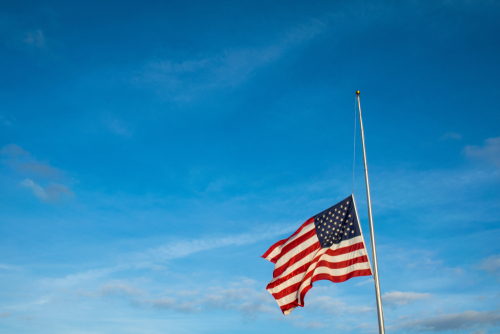Last week one of my longtime heroes died: Walter Williams.
Williams, 84, was an economics professor at George Mason University, a nationally syndicated columnist, a rigorous researcher of government policies affecting African Americans, and the author of 13 highly acclaimed books.
Williams was one of the nation’s greatest economists and public intellectuals.
Here is just a brief sampling from his many books, columns and speeches:
- “Prior to capitalism, the way people amassed great wealth was by looting, plundering and enslaving their fellow man. Capitalism made it possible to become wealthy by serving your fellow man.”
- “Here’s Williams’ roadmap out of poverty: Complete high school; get a job, any kind of a job; get married before having children; and be a law-abiding citizen. Among both black and white Americans so described, the poverty rate is in the single digits.”
- “What we call the market is really a democratic process involving millions, and in some markets billions, of people making personal decisions that express their preferences. When you hear someone say that he doesn’t trust the market, and wants to replace it with government edicts, he’s really calling for a switch from a democratic process to a totalitarian one.”
- “Profit is vital to human well-being. Profit is the payment to entrepreneurs just as wages are payments to labor, interest to capital, and rent to land.”
- “Poverty in Egypt, or anywhere else, is not very difficult to explain. There are three basic causes: People are poor because they cannot produce anything highly valued by others. They can produce things highly valued by others but are hampered or prevented from doing so. Or, they volunteer to be poor.”
- “The best good thing that politicians can do for the economy is to stop doing bad. In part, this can be achieved through reducing taxes and economic regulation, and staying out of our lives.”
- “The public good is promoted best by people pursuing their own private interests. This bothers some people because they’re more concerned with motives than with results.”
- “More important than anything else is for Americans to wise up to class warfare demagoguery and reject the politics of envy.”
Williams was a great believer in the sovereignty of the individual and the power of capitalism to finance productivity and innovation, raise living standards, and lift men and women out of poverty.
A onetime cab driver who grew up poor in the housing projects of Philadelphia, he earned a doctorate in economics from the University of California, Los Angeles.
Over the decades, his data-rich books delivered regular broadsides against fine-sounding government programs – like occupational licensing, rent control and higher minimum wages – that drive up the cost of goods and services for consumers and disproportionately hurt minorities.
Williams reserved particular scorn for educational elites and our presumed intellectual betters who stand forever ready to replace what works with “something that sounds good.”
Williams held views that many in the mainstream media couldn’t tolerate, even – or especially – when voiced by a prominent Black man.
I found it odd, for example, that obituaries in both The New York Times and Washington Post used a 1981 charge against Williams by Benjamin Hooks, then-President of the NAACP, that “Black conservatives are basically a carbon copy of white conservatives.”
Yes, Black conservatives agree with white conservatives on policy issues, just as Black progressives agree with white progressives on policy issues.
But who would denigrate them by saying, “Black progressives are basically a carbon copy of white progressives”?
The real sin for elites was that Williams thought for himself, rather than fitting into their preconceived categories.
(Williams’ views were actually Libertarian – he called himself a “Madisonian liberal” – not Republican.)
Sadly, after more than 60 years as a columnist, author, speaker and educator, Williams never had a chance to enjoy a retirement.
After teaching for 40 years, he died suddenly in his car after his last class Tuesday night. (Williams suffered from chronic obstructive pulmonary disease.)
There is consolation, however, in the realization that the ideas he championed will live on.
In a Wall Street Journal editorial last week, fellow George Mason University professor Donald J. Boudreaux called Williams “a scholar’s scholar” … “one of America’s most courageous defenders of free markets, constitutionally limited government and individual responsibility” … and “a tireless champion of American values.”
Amen to that.
Walter Williams, R.I.P.
Alex
Click here to watch Alex’s latest video update.

